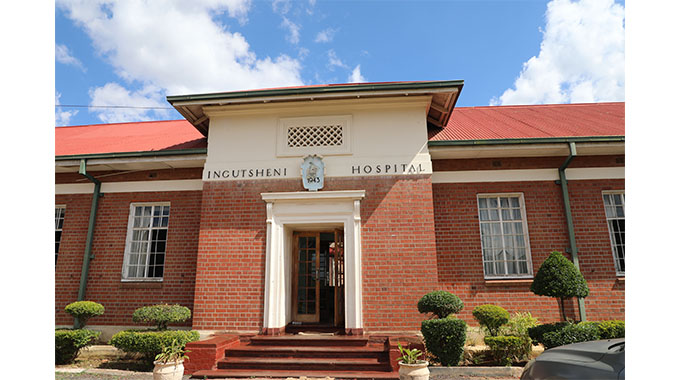NGOs launch water sanitation programme
Practical Action, Moriti-oa-Sechaba and Dabane Trust have for the past year been working on projects to provide safe drinking water as well as projects to improve sanitation and hygiene in Gwanda District.
The five-year programme, which started last year is being funded by the Africa Caribbean and Pacific (ACP) and the European Union (EU).
Most wards now have improved water supplies.
Officially launching the programme in Gwanda town, the acting Provincial Administrator for Matabeleland South, Mr Midard Khumalo, said it was everyone’s duty to ensure that the programme was a success.
In a speech read on his behalf by the provincial administrative officer, Ms Sikhangezile Mafu, Mr Khumalo said: “Let us bear in mind that we are the owners of this programme and as such I call upon everyone of us to cooperate to ensure successful implementation of the programme,” he said.
Mr Khumalo said a lot needed to be done to ensure all the people in the district had access to clean water and that their sanitation had been improved. “A lot needs to be done to guarantee the district reliable water supplies and reduce the incidence of water borne diseases,” said Mr Khumalo.
Gwanda district is a very dry area with people in the rural areas relying mostly on underground water due to the scarcity of surface water while in some areas people still use the bush as toilets, exposing themselves to risks of contracting diseases.
Gwanda district has 527 boreholes of which 243 are functioning while 196 broke down and 88 have completely dried up.
The district also has 561 deep wells but 30 of them have dried up.
Of the 21 158 households in the district, 7 235 have well ventilated toilets.
Dabane Trust director Mr Stephen Hussey said their target was to construct 2 860 Blair toilets.
He said the organisation would also rehabilitate 150 boreholes to improve water supplies. “We will also establish 228 new water supply systems. Of these, 208 will be sand abstraction systems from deep sand rivers and 20 will be sand river water harvesting systems that will collect sand which will in turn hold clean and safe drinking water,” said Mr Hussey.
Under the programme, Moriti-oa-Sechaba Trust would train community health workers. It would also train builders who will in turn construct toilets for vulnerable groups.
The organisation will in addition construct toilets for 10 selected schools, drill 10 boreholes for communities and also provide 50 bicycles to trained pump mechanics who will repair boreholes.
“We want to assure you that all activities will be done in collaboration with communities, Rural District Council and other partners. Each year we are going to implement projects meant to improve access to clean water as well as improve sanitation,” said Mrs Sefelipelo Bhebhe, the director of Moriti-oa-Sechaba.
Practical Action representative Mr Zivanai Kisimisi said the programme would completely change the people’s way of life.
He said NGOs would continue working with local authorities to improve service delivery in the rural careas and take the concept of Public Private Partnerships (PPPs) seriously as they were crucial in promoting development of the economy.
The chief executive officer of Gwanda RDC, Mr Ronnie Sibanda, expressed hope that the programme would improve access to clean and safe drinking water as well as reduce waterborne diseases.
“Our survival depends on the availability of clean and safe water for domestic purposes as well as water for our livestock,” said Mr Sibanda.
Chief Masuku encouraged the NGOs to work closely with the communities in the implementation of the programme.
“NGOs should work hand in hand with communities so that these communities would take ownership of these development projects. Let’s all dedicate ourselves to see that this programme is a success. What is left now is for us to see progress on the ground,” he said.











Comments